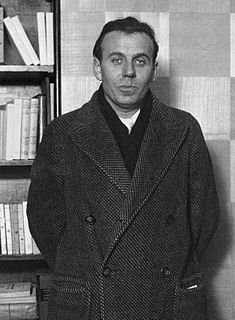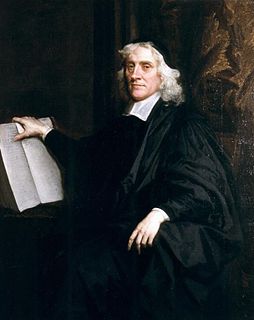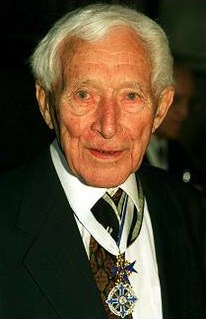A Quote by Plato
But this is not difficult, O Athenians! to escape death; but it is much more difficult to avoid depravity, for it runs swifter than death. And now I, being slow and aged, am overtaken by the slower of the two; but my accusers, being strong and active, have been overtaken by the swifter, wickedness. And now I depart, condemned by you to death; but they condemned by truth, as guilty of iniquity and injustice: and I abide my sentence, and so do they. These things, perhaps, ought so to be, and I think that they are for the best.
Related Quotes
But we are not interested in death at all: rather, we escape the facts, we are continuously escaping the facts. Death is there, and every moment we are dying. Death is not something far away, it is here and now: we are dying. But while we are dying we go on being concerned about life. This concern with life, this over concern with life, is just an escape, just a fear. Death is there, deep inside - growing.
[N]either in war nor yet at law ought any man to use every way of escaping death. For often in battle there is no doubt that if a man will throw away his arms, and fall on his knees before his pursuers, he may escape death; and in other dangers there are other ways of escaping death, if a man is willing to say and do anything. The difficulty, my friends, is not in avoiding death, but in avoiding unrighteousness; for that runs faster than death.
You too must be of good hope as regards death, gentlemen of the jury, and keep this one truth in mind, that a good man cannot be harmed either in life or in death, and that his affairs are not neglected by the gods. What has happened to me now has not happened of itself, but it is clear to me that it was better for me to die now and to escape from trouble. That is why my divine sign did not oppose me at any point. So I am certainly not angry with those who convicted me, or with my accusers. Of course that was not their purpose when they accused and convicted me, but they thought they were hurting me, and for this they deserve blame.
Not much music left inside us for life to dance to. Our youth has gone to the ends of the earth to die in the silence of the truth. And where, I ask you, can a man escape to, when he hasn't enough madness left inside him? The truth is an endless death agony. The truth is death. You have to choose: death or lies. I've never been able to kill myself.
I've been a performer in the public eye for many years now and it's much darker. It feels so worse now. It feels heavy; it's difficult to deal with. The hatred is unbelievable, but I actually feel a lot more compassion for the journalists and people who aren't used to that. At least on some level, it's been a part of my world for a long time, so I can handle it. I'm not going to say that I'm used to it, because I'm not. I think it's really difficult for people who are just doing journalism and receiving death threats on a very consistent basis.
All solitary enjoyments, quickly fall, or become painful, so that, perhaps, no more insufferable misery can be conceived than that which must follow incommunicable privileges. Only imagine a human being condemned to perpetual youth while all around him decay and die. O, how sincerely would he call upon death for deliverance!
The (capital punishment) controversy passes the anarch by. For him, the linking of death and punishment is absurd. In this respect, he is closer to the wrongdoer than to the judge, for the high-ranking culprit who is condemned to death is not prepared to acknowledge his sentence as atonement; rather, he sees his guilt in his own inadequacy. Thus, he recognizes himself not as a moral but as a tragic person.
I think I write mostly about death and so it is interesting to hear how often people think I'm writing about pregnancy and birth. Though of course they are two sides of the same coin. Both when I was pregnant and now as a mother, I am consumed with thoughts of death. This is a strange role in parenting. The death guardian.
I tried to think about these two issues very freely. With sex, I think I can manage with that. With death, this is a more difficult theme for me. I'm not a believer, even though I'm baptized. I don't practice. I don't believe in God, so I feel very alone facing death. What I discovered is that the only way to recognize death is if you are part of life, if you are part of sexual pleasure, if you link it with sexual pleasure.








































